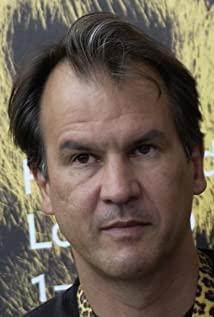It's actually an awkward combination. Due to the different cultural backgrounds of the viewers and the strong expressions of their own cultural attributes by the three directors, including thematic expression and method expression, the film has become a work that cannot be communicated and understood, and cannot be self-reflected. For example, viewers with an oriental cultural background may not understand and identify with European images, which will lead to an instinctive closeness to Wong Kar-wai's hand, which means losing the possibility of communicating with European and American cultures, as well as losing the opportunity to communicate with European and American cultures. The possibility of re-examining one’s own culture (because the images of the three cultural attributes are in the same time and space). Sorry, and embarrassed.
Relatively speaking, with the exception of Wong Kar Wai's "Hand", I am more accepting of American images than European ones.
One of the reasons for this is probably the influence of my own view of the lack of reflection and checks and balances inherent in European liberal culture. Continental countries, especially the Mediterranean European countries with lower dimensions, have more Roman cultural genes than Northern Europe and the island country England. Specifically, a hedonistic, depraved gene. This was repeated in the days when Venice became the commercial center of Europe. After World War II, there was another huge resurgence frenzy. Compared with Europe, the United States is more conservative and more rationalistic. Even if Downey has a dream, it is still a Freudian framework of rational analysis. And in the plot setting, it is a more traditional absurd comedy type. The European image is stream of consciousness, naturalism, causality, and nature. Of course, we can try to beautify it, but only one sentence is enough to criticize it - such a thorough naturalism, people How much is it with the beast? The collapse of Rome, apart from the problem of governance that the level of productivity could not withstand such a huge geographical area at that time, was mainly about social pleasure and degeneration. Why did the Industrial Revolution not start in Italy, the birthplace of the Renaissance, but in England? Why was the Enlightenment also on the north shore of Europe and not the south? Why did Germany in the north develop so rapidly? Of course, these issues cannot be easily generalized, including simple geographic determinism. But more or less, the Continental tradition, is prone to the spectrum of irrationality. Naturalism, as far as what the film expresses, is far from rational. This is very different from Anglo-Saxon culture, and certainly from repressed Eastern culture.
Exchanges and mutual learning among civilizations are very important. It is hoped that the awareness of the exchange of dialogues will enable this spliced combination to be read in other holistic ways.
View more about Eros reviews











